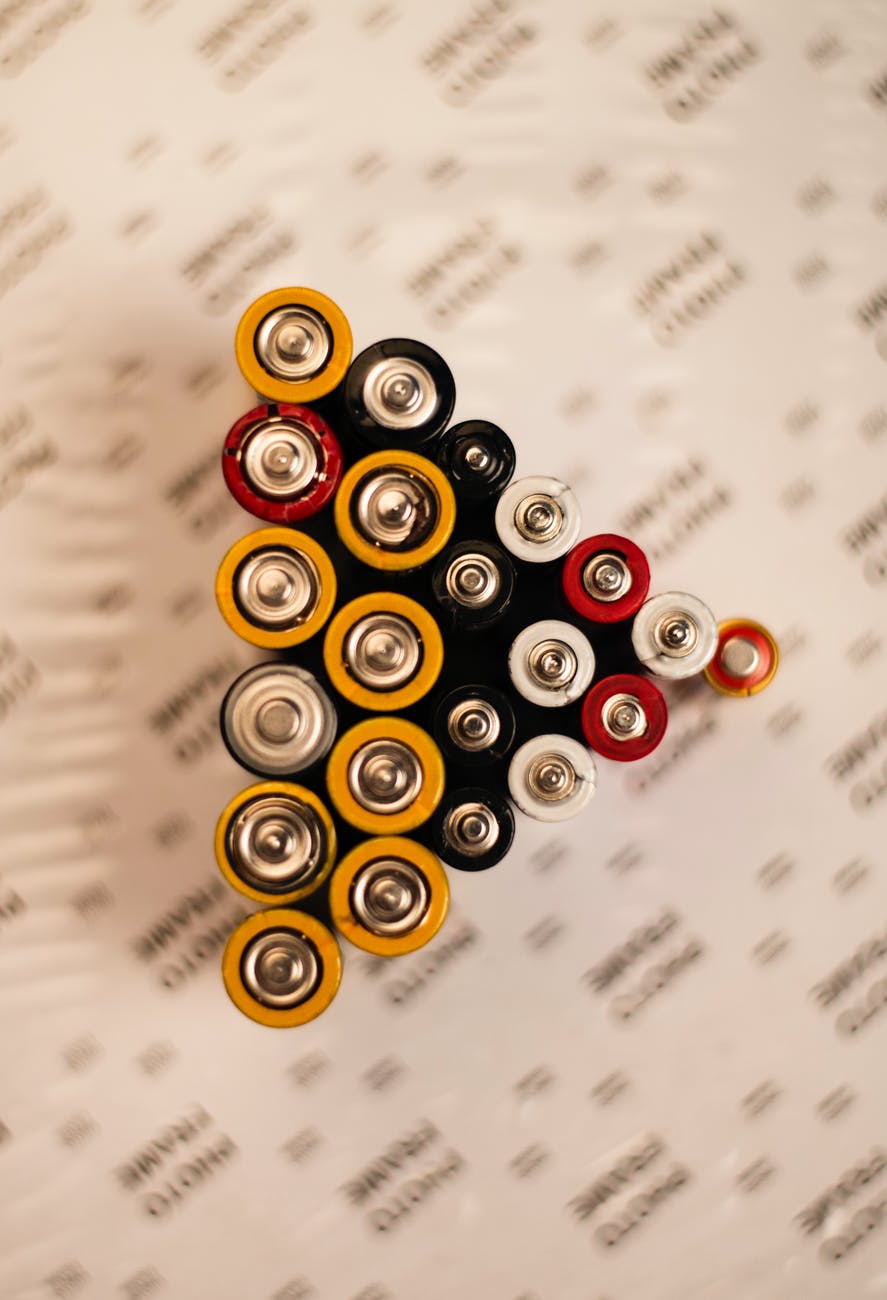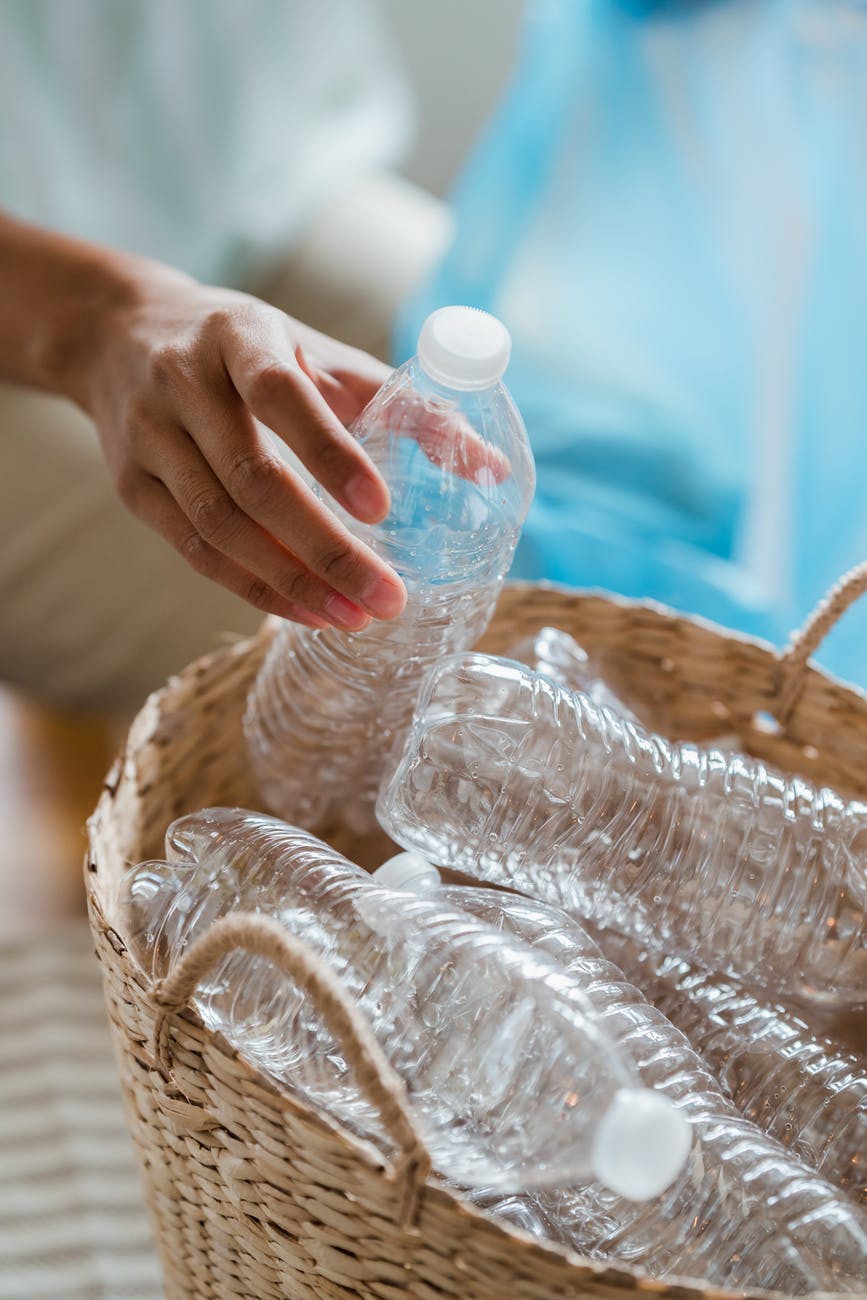Air contamination is the presence in or presentation into the quality of a substance which has hurtful or harmful impacts. It is a combination of strong particles and gases noticeable all around. Vehicle emanations, synthetics from production lines, residue, dust and form spores might be suspended as particles. Ozone, gas, is a significant piece of air contamination in urban areas. At the point when ozone structures air contamination, it’s additionally called brown haze. Some air contaminations are toxic. Breathing in them can build the possibility you’ll have medical conditions. contamination might cause illnesses, sensitivities and even passing to people; it might likewise make hurt other living organic entities, for example, creatures and food crops, and may harm the regular habitat or constructed climate. It is hypothesized that it requires just 3 weeks for an individual to shape a propensity. All we really want is little changes in our day by day way of life to decrease our carbon sway on the climate. Here is the rundown of 10 day by day propensities for individuals that are gradually killing the climate.
1.Driving

Driving is the first habit of Human beings to pollute the Air. The health risks of air pollution are extremely serious. Poor air quality increases respiratory ailments like asthma and bronchitis, heightens the risk of life-threatening conditions like cancer, and burdens our health care system with substantial medical costs. Passenger vehicles are a major pollution contributor, producing significant amounts of nitrogen oxides, carbon monoxide, and other pollution. Transportation contributed more than half of the carbon monoxide and nitrogen oxides, and almost a quarter of the hydrocarbons emitted into our air.
Clean vehicle and fuel technologies provide us with an affordable, available means of reducing transportation related air pollution and climate change emissions. These include fuel-efficient vehicles that use less oil; cleaner fuels that produce fewer emissions; and electric cars and trucks that can entirely remove tailpipe emissions. Strong federal and state policies also help. Vehicle emission standards have helped cut pollution from cars and trucks by about 90 percent since 1998, with further improvements coming from the Tier 3 standards. Future emissions reductions from trucks and other freight sources are essential for meeting air quality standards and protecting the health of those who live and work close to ports, rail yards, and freight corridors.
2.Improper disposal of batteries and ink

Technically batteries can be considered e-waste, and metal waste. The difference is batteries don’t go in the recycling bin OR the garbage bin. That doesn’t mean batteries can’t be recycled though. The chemicals that can leak out of them are extremely harmful to the planet, and can contaminate other waste that would otherwise be recyclable. Therefore they need to be recycled separately from all other forms of waste. The broken battery pieces go into a vat, where the lead and heavy materials fall to the bottom while the plastic rises to the top. At this point, the polypropylene pieces are scooped away and the liquids are drawn off, leaving the lead and heavy metals. Each of the materials then begins its own recycling journey. We’ll begin with the plastic, or polypropylene. Paper can also be sustainably and easily repurposed. The process of waste paper recycling most often involves mixing used/old paper with water and chemicals to break it down. It is then chopped up and heated, which breaks it down further into strands of cellulose, a type of organic plant material; this resulting mixture is called pulp, or slurry. It is strained through screens, which remove plastic that may still be in the mixture then cleaned, de-inked, bleached, and mixed with water.
Rechargeable batteries consume less natural resources. One huge positive of using rechargeable batteries is that due to their ability to recharge, fewer batteries are needed to provide the same amount of energy. This translates to fewer resources being consumed during the manufacturing process. Another benefit of using rechargeable batteries over disposable batteries is the cost savings. Rechargeable batteries save the consumer money due to its reusability. We recycle everything that we can, from paper and cardboard to ink cartridges and old x-rays. Some companies safely and confidentially recycle old x-ray films because of x-ray films contain silver halide which can be extracted and converted into pure silver.
3.Excessive utilization of plastic

Utilized for minutes, goes on for quite a long time – single-use plastics have turned into a scourge on our current circumstance. 100,000 marine creatures are killed by plastic sacks every year. Change to reusables to decrease your general waste and keep sealife from hurt. To consent to contamination control guidelines and guarantee your security, we do need to utilize a ton of plastics and disposables. We will consistently attempt a reusable choice first. Bio items utilize degradable plastic, utilized from EPI (Environmental Products Inc.), a 100% oxo-biodegradable material. They even inventory with cornstarch cups rather than plastic ones. Individuals utilize plastic packs to convey things like food and garments, which are purchased from shops. Plastic packs are ordinarily utilized, despite the fact that we realize they can harm the climate. For metropolitan strong waste, plastic sacks have become significant things in the litter framework. This has brought about numerous adverse natural impacts including creature stifling, contamination, blockage of channels, waterways and streams, and scene deformation. Because of these impacts, people in general on the loose, activists and assemblies have voiced shock to the extent that some public states have prohibited the utilization of plastic sacks for shopping.
A few nations have embraced an expense for plastic packs, producing into account the adverse results of plastic sacks on farming creation. The significant effect of plastic sacks on the climate is that it requires numerous years to for them to decay. Furthermore, harmful substances are delivered into the dirt when plastic sacks die under daylight and, on the off chance that plastic packs are scorched, they discharge a poisonous substance into the air causing encompassing air contamination. The unregulated collection of cancer-causing compounds, the utilization of plastic sacks might permit advances into destructive sicknesses. Plastic packs are unloaded aimlessly into landfills worldwide that possess huge loads of hectares of land and emanate risky methane and carbon dioxide gases.
4.Throwing food as waste

The absence of food security is perhaps the most critical crisis confronting our nation today. Consistently north of 20 million South African men, ladies and kids hit the hay hungry. We live in a country that creates a wealth of crisp, supporting food that could take care of every one of our residents, however one of the focal issues is that 10 million tons of food goes to squander each year. Food squander is a monstrous worldwide issue. We regularly find out about food going to squander in our homes or being lost at the rancher’s level. Yet, little is spoken with regards to the food that is lost at the dealer and purchaser level. A large part of the food we eat is developed, collected, and afterward moved to distribution centers where it is arranged, stuffed, and put away until it very well may be sold and shipped to the last objective. Brokers purchase produce in mass from everywhere the world, and afterward they offer this produce to grocery stores, retailers, and wholesalers. Assuming there are disturbances in this framework or on the other hand in the event that food can’t be sold quick enough, it goes off and is tossed out. The ranchers who developed that food don’t get compensated, the dealers lose benefit, and every one of the assets that went into developing the food including the valuable water and energy assets are squandered as well.
5.Using paper

Regardless of our daily use of paper, what we as humans overlook, is that it is made from trees. The environmental effects of paper are significant, which has led to changes in industry and behaviour at both business and personal levels. With the use of modern technology such as the printing press and the highly mechanized harvesting of wood, disposable paper became a relatively cheap commodity, which led to a high level of consumption and waste. The rise in global environmental issues such as air and water pollution, climate change, overflowing landfills and clear cutting have all lead to increased government regulations. There is now a trend towards sustainability in the pulp and paper industry as it moves to reduce clear cutting, water use, greenhouse gas emissions, fossil fuel consumption and clean up its influence on local water supplies and air pollution.
Paper can also be sustainably and easily repurposed. Reuse and repurposing options include reusing waste paper for wrapping, packaging, composting, cleaning, lining pet cages, etc. It saves waste paper from occupying homes of people and producing methane as it breaks down. Because paper fibre contains carbon, recycling keeps the carbon locked up for longer and out of the atmosphere. It can be made into new recycled paper. Newspapers are one of the easiest materials to recycle. Switched from paper records to a computer system. Those who have seen us this year will have noticed the use of the iPad as we move away from paper forms. We will always ask you first if you want a receipt printed. We can email you invoices, treatment plans, information and forms.
6.Boiling water using electricity

Reduce the Environmental Impact of Your Energy Use. In an emergency, water contaminated with germs can often be made safe to drink by boiling, adding disinfectants, or filtering. Inadequate access to safe drinking water remains a global health problem, particularly in rural areas. Boiling is the most commonly used form of point-of-use household water treatment (HWT) globally, although the use of bottled water in low- and middle-income countries (LMICs) is increasing rapidly. The amount of energy used to boil water using electricity makes it one of the most expensive methods as compared to gas. Boiling water for use in the shower is extremely inefficient. Lot of energy required to translate into problems on the production end of things. As a lot of electricity is generated via coal and diesel engines, increasing the power load by using the boiler or coffee maker has a big toll on the environment. Seal and insulate your home and office to improve comfort and reduce your heating and cooling costs. Although electricity is a clean and relatively safe form of energy when it is used, the generation and transmission of electricity affects the environment.
Energy efficiency is about using less energy to get the same job done and in the process, avoiding high energy bills and unnecessary pollution. Many products, homes, commercial buildings, and industrial facilities consume far more energy than needed. For example, energy efficient light bulbs certified by ENERGY STAR use 70 to 90% less energy than incandescent bulbs. Start for guidance on how to save energy, save money, and protect the environment. Behind each blue ENERGY STAR label is a product, building, or home that is independently certified to use less energy, achieving emissions reductions to reduce air pollution and help protect the climate. Nearly all types of electric power plants have an effect on the environment, but some power plants have larger effects than others.
7.Washing one’s face

We as a whole shut our eyes when we clean up, yet we shouldn’t ignore all the ecological and wellbeing stinging effects of face wash. We want to clean away something beyond oil and soil from our skin health management schedule. Free your skin of contaminations with items that don’t contain pollutions themselves. Plastic is harming the Great Lakes and different waterways all through the world, yet in addition to litter’s at fault; it’s your facial chemical. The vast majority don’t understand that numerous well known shedding cleaning agents really contain plastic miniature dots that are intended to wash down the channel, regardless of the way that they are not biodegradable (So, indeed, you’ve been cleaning up with plastic). These miniature globules are small bits of polyethylene (a sort of plastic), and they can be found in facial cleaning agents, however numerous different kinds of beauty care products, for example, body wash, sunscreens and toothpaste. Subsequent to washing down the channel, these plastic particles ingest poisons from polluted spillover. Marine untamed life and birds effectively botch these miniature globules as food, prompting possibly deadly squares in their stomach related frameworks. A review in England observed that 36.5 percent of fish in the English Channel include plastic inside their gastrointestinal plots. Individuals generally eat the fish that have eaten these tainted miniature dabs, causing worries over long haul wellbeing dangers to people.
We can go for regular and natural face washes that leave us with similar outcomes, without the unsafe synthetics and aggravations. Normal and natural face wash is the skin superhuman here and a basic part of any natural skincare schedule.
8.Eating meat

One more propensity for people is eating meat. The meat business is one of the essential supporters of issues like contamination, food deficiencies and the purging of our seas. Raising creatures for food additionally requires monstrous measures of water, energy, and land. Raising creatures for food is perhaps the greatest reason for water contamination in the industrialized world. The microbes, pesticides and anti-toxins that are amassed in animal tissue are additionally found in their countenances, and these synthetic substances can effectsly affect the environments encompassing huge homesteads. In certain nations, creatures raised for food produce multiple times the feces of the people who live there. A large part of the loss from production line ranches and abattoirs streams into streams and waterways, tainting water sources.
Creatures raised for food additionally produce harmful gasses, for example, smelling salts and methane alongside their fertilizer. As indicated by the World Watch Institute, somewhere in the range of 15 and 20 percent of the methane gas outflows overall are created by creatures raised for food. One of the most broadly created ozone depleting substances on the planet is methane. These gasses add to environmental change and can nauseate individuals who live in networks around ranches.
9.Flushing the latrine

Flushing the latrine is the one more negative quirk of human. In the event that you flush without fail and each flush utilized 9 gallons, that could mean utilizing around 60 gallons of water each day just to flush. A large portion of the waste water that flush latrines make over 80% overall prompts wind up going straightforwardly once more into the climate. No treatment, no utilization, simply a great deal of open sewers. With the innovation of flush latrines, the volume of waste made when people go to the washroom expanded very nearly 20-overlap. To manage this new degree of waste, we designed waste-water treatment plants. The point of these sewage treatment frameworks has customarily been to give clean emanating that can be returned to the environment. So fundamentally, we drain water out of a biological system (utilizing energy), clean it (more energy), pipe it through a city (utilizing heaps of framework) into our homes. Then, at that point, we wash it away for good (this is the place where it gets messy once more) and pipe it to a waste-water treatment plant (more foundation frequently utilizing a great deal of energy) to return it to a biological system.
In any case, this jump can be excessively huge for some and may not be achievable in certain areas. In this way, the option could be to decrease the occasions one flushes the latrine or the establishment of low-flush latrines. Consistently we affect the climate. From unmistakable blue reusing canisters to items with decreased bundling that is biodegradable, all of us are attempting to use sound judgment. The better option is use fertilizer latrines. The utilization of this choice rather than water is a decent option since the waste can be utilized for ventures like the production of compost.
10.Brushing teeth

Cleaning teeth is another terrible human propensity since it adds to water wastage. Help the Environment while you brush. The normal individual squanders something like 90 glasses of water each day when they leave the tap running while at the same time cleaning their teeth. In Australia, more than 30 million toothbrushes are utilized and discarded, adding up to roughly 1000 tons of landfill every year. The plastic they’re made of will not separate in the course of our life. The helpful thing is utilizing the brush with handles are produced using Moso bamboo (which isn’t a food hotspot for pandas). This is biodegradable, ecologically feasible, and doesn’t dirty the climate. Bamboo is viewed as a grass, and is the abstained developing plant in the world. This astonishing development and self-reestablishing capacity implies that the utilization of bamboo is naturally supportable. A great representation is among the Maasai of Tanzania and Kenya. They utilize a bush conversationally known as the toothbrush tree (Salvadorapersica). The stem of the bush is utilized to clean the teeth and furthermore serves to give extra medical advantages as it is connected with cures from intricacies borne from ailment and hacks.
A few groups are focused on aiding the climate by empowering reusing and eliminating waste. By preserving assets and utilizing economical items, we can do our part in pursuing a more manageable future. You can do likewise at home by making a couple of little changes to your brushing schedule. Turn off the tap. Alongside the gallons of water squandered, conventional dental cleanliness items bring about piles of waste plastic that will require many years, or even hundreds of years, to rot. Unmistakably, dental consideration squander is a major issue. While shutting the tap during the brush is one choice, the other is to utilize brushing procedures that don’t expect one to utilize water. A few spice shoots and leaves have been utilized over the course of the hundreds of years to counterbalance the lifeless inhale of people and give dental cleanliness and assurance against microorganisms that cause cavities. With regards to our dental consideration schedule, we frequently experience an issue keeping things supportable. Floss and toothbrushes the same are bundled in plastic, and it’s hard to track down a brand of mouthwash that doesn’t arrive in a major plastic container.
